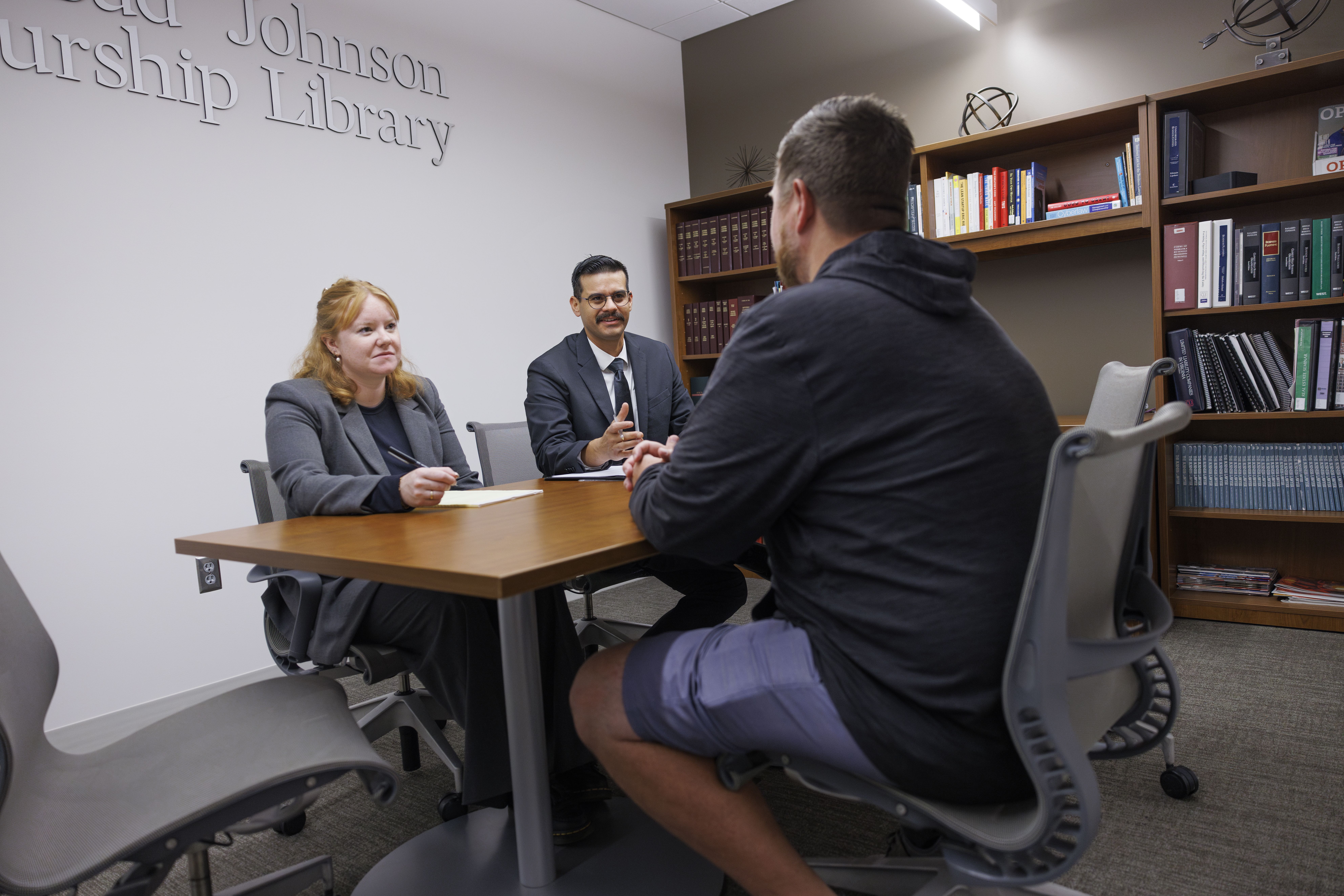Navigation Buttons
The Debtor Defense Clinic (DDC) began in the fall of 2023. Currently, the DDC is open to two second-year students and two third-year students at the College of Law.
As with other clinical offerings at the College of Law, the pedagogical goals of the DDC are to allow students to apply theory to practice, assume professional responsibility for their clients’ cases by acting in role as their clients’ legal representatives, and be exposed to ethical issues that will arise during their time in the DDC. Although students obviously work on cases that substantively involve debt collection issues, DDC alums have gone on to work in varied careers. The skills and knowledge that DDC students receive during their time in the Clinic have proven to be an asset to them no matter what type of legal career they choose once they graduate.

